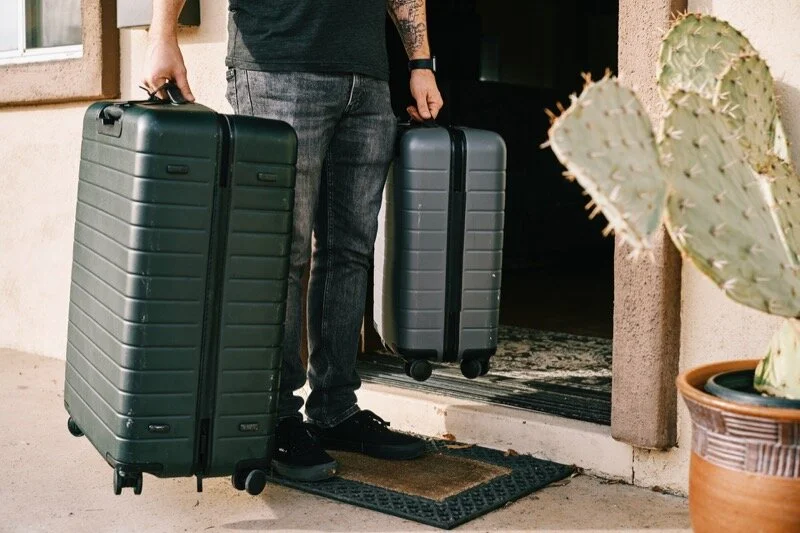3 Hardest Parts About Moving Into Your Dorm Room
How does the whole moving into your college dorms thing work?
What will college move-in day be like?
If these questions (or ones like them) are swirling around your mind, don’t worry. You don’t need to know all the answers before move-in day.
Moving to a college dorm is a process filled with many trips to stores and many late-nights browsing Amazon.
Finding everything you need won’t happen in one day but it will get done. Packing everything up and moving into your dorm room will be a process too.
Before you pack all your belongings and head to your college campus, think about the 3 hardest parts of moving into your dorm room.
Packing for college
Overpacking is usually the default for most freshmen. Why? They’ve never moved out on their own before.
If you’re not sure if you’re overpacking, this is a normal experience for an incoming freshman. (After all, how do you know you’ll have everything you need?)
Many upperclassmen have become pros at living in the dorms, so how do they avoid overpacking? Here are some of their best-kept secrets:
Learn to live on less.
One summer, I spent 12 weeks traveling for a job. What I learned from that experience is that I could really live comfortably with only the items found in a carry-on size suitcase and a backpack. I didn’t need more than that on a regular basis.
I’m certainly not suggesting you pack only a carry-on suitcase for your college dorm, but I am suggesting you err on leaving items behind.
Rather than asking yourself if you will use an item, consider asking yourself how often you will use that item.
Value having more space more than having more stuff.
Dorm rooms usually aren’t spacious. They’re fairly small (especially if you’re used to a big space at home), and they can easily get cluttered.
When packing, upperclassmen think about space.
They’d rather have a less cluttered desk to use for studying than a desk full of picture frames, office supplies, etc.
They’d rather have a closet that is easy to find items in than all the clothes they could possibly ever use.
This means they choose not to buy things or not to bring things, even if they might use them a few times. Why? They’d rather have less clutter and more space.
Plan to get items after arriving at college.
If you forget an item you decide you need, your parent(s) can always ship it to you or you can purchase it at a store.
If you discover something that would be nice to have, you can always order it online or run by a local grocery store.
Once you get to campus, you’ll get a better feel of what you do need and you don’t need, but until then you can use these secrets to help guide your packing.
Claiming bed/closet
Arguably one of the more awkward situations you’ll have to navigate once first arriving in your dorm room is claiming your space.
Sometimes freshmen discuss this with their roommate before arriving at college, but sometimes they don’t think about it until they get to their room.
In general, if you don’t discuss who gets what bed or closet before arriving on campus, it’s “first come first serve.”
While you can try to beat your roommate(s) to your room, this may lead to some awkward tension or resentment if one person claims what another person wanted.
To avoid unpleasantness, consider messaging with your roommate-to-be to discuss who gets what space before move-in day. You don’t want to start the semester off on the wrong foot.
Getting settled
Getting settled takes a while, meaning it won’t happen in one afternoon on move-in day.
So what does it mean to get settled? It essentially means making your space yours: getting comfortable with the layout, knowing where your belongings are, making your space liveable for you, etc.
Unpacking is just the start. As you live in your room, you’ll discover how to arrange things to make your space livable for both you and your roommate(s).
So what are some things that typically help with getting settled in your dorm room?
Drawer organizers
Drawer organizers aren't essential, and they may be something you won’t know you’ll want until you unpack, but they can be very helpful when getting settled.
They can help make your things easy-to-access in the morning when you’re trying to find a pair of socks before running off to class.
Shoe organizers
Throwing all your shoes in a bin or in the bottom of your closet works but usually adds more time to getting ready in the morning.
A simple door-hanging shoe organizer can help make getting ready much quicker.
Curtains/an extra blanket
The college I went to had bunkbeds in each dorm room. Many students would bring an extra blanket to tuck in the mattress above them in order to keep out the light when they wanted to sleep.
Many dorm rooms on college campuses have stand-alone beds, so having light-blocking or blackout curtains would be more helpful.
There are certainly many things you could purchase to help make your room more livable, and these are only a few ideas that students find helpful.
While moving to a college dorm takes time, energy, and lots of planning, it can make your start of college less stressful than it needs to be. Focusing on the big picture in the long-term will help you avoid overpacking and find ways to make your space livable.










